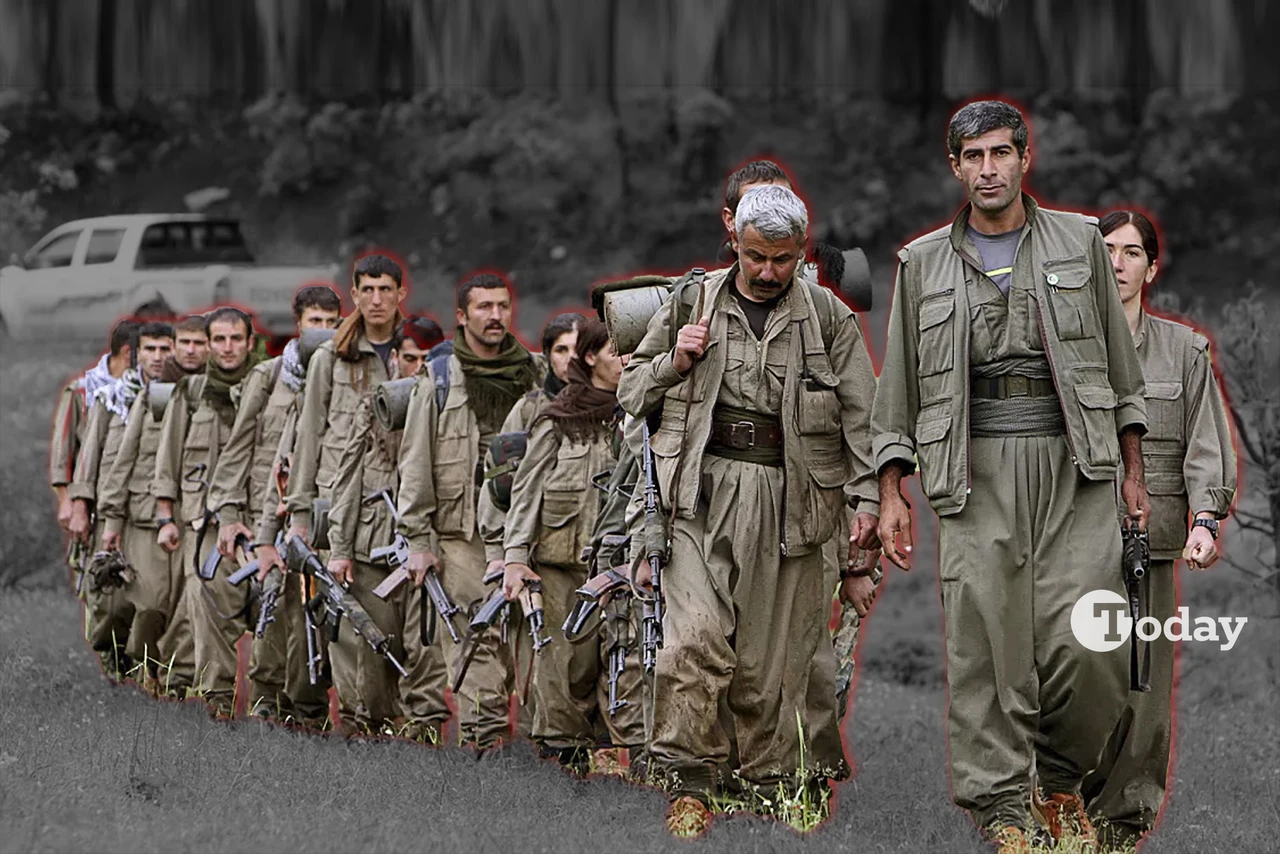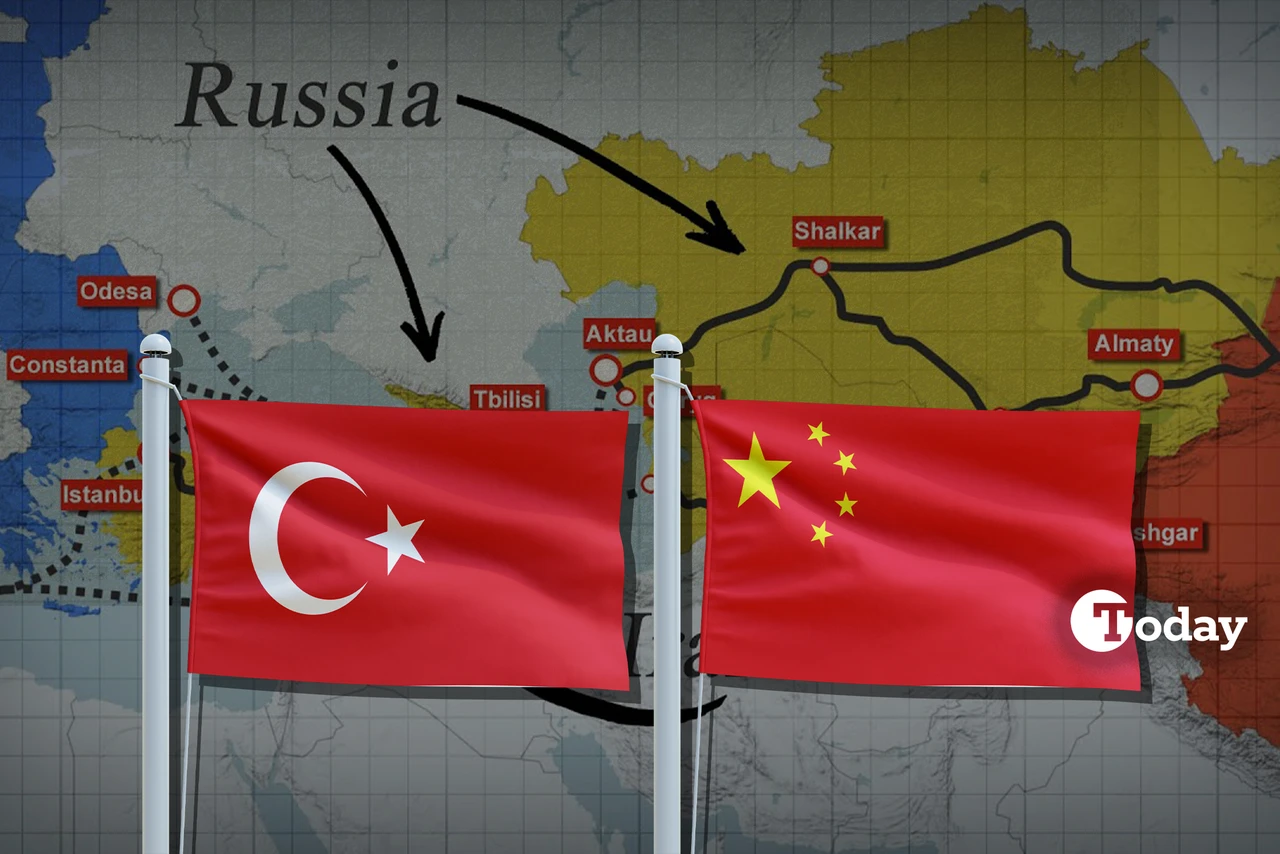2024 sees Türkiye’s relentless crackdown on Daesh terrorist group, dismantling networks
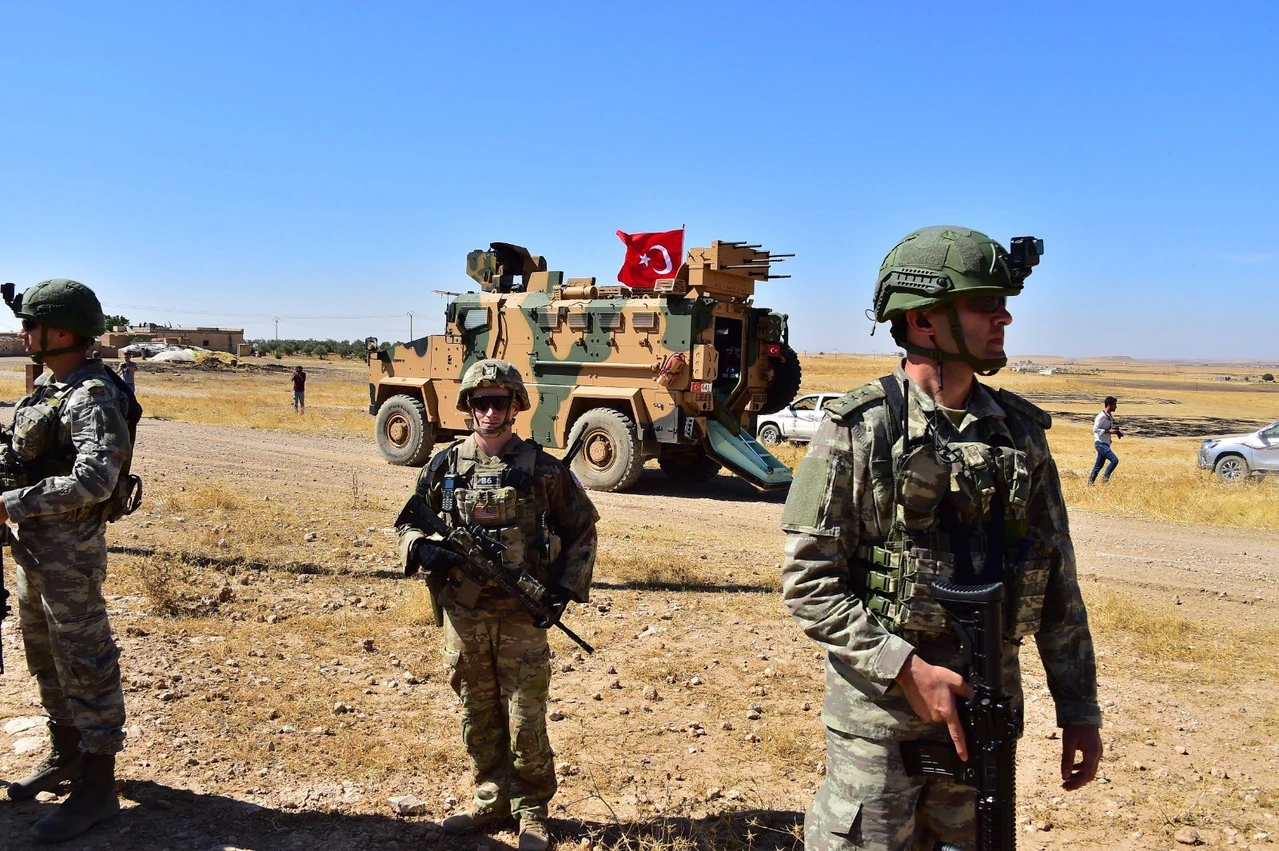 A handout photo made available by Turkish Defense Ministry shows Turkish and U.S. soldiers patrol together in northern Syria, in Tal Abyad city, near Türkiye border in Syria on 8 September, 2019 (Turkish MoD Photo)
A handout photo made available by Turkish Defense Ministry shows Turkish and U.S. soldiers patrol together in northern Syria, in Tal Abyad city, near Türkiye border in Syria on 8 September, 2019 (Turkish MoD Photo)
Türkiye ramped up its counterterrorism efforts against the Daesh terrorist group throughout 2024, with a notable increase in operations, leading to significant arrests and further disruption of the group’s activities.
The year saw Türkiye undertake 1,399 operations against Daesh, according to data released at the end of 2024. President Recep Tayyip Erdogan emphasized this success, sharing details on social media under the title “What Did We Do in 2024?”
Additionally, Interior Minister Ali Yerlikaya reported that 536 Daesh suspects were captured during the Gurz-34 operations across 57 provinces in the last 12 days of December.
Yerlikaya emphasized the significance of the operations, noting that the suspects were involved in various activities within the terrorist organization, including financial support to the Daesh terror group and maintaining ties with conflict zones.
The minister also listed the provinces where the operations took place, which included Adana, Afyonkarahisar, Ankara, Antalya, Balikesir, Batman and Diyarbakir, among others.
Meanwhile, Erdogan recently said that Türkiye has “literally defeated” the Daesh terrorist group, stating that recent efforts to relaunch the group as a tool for regional manipulation had been thwarted.
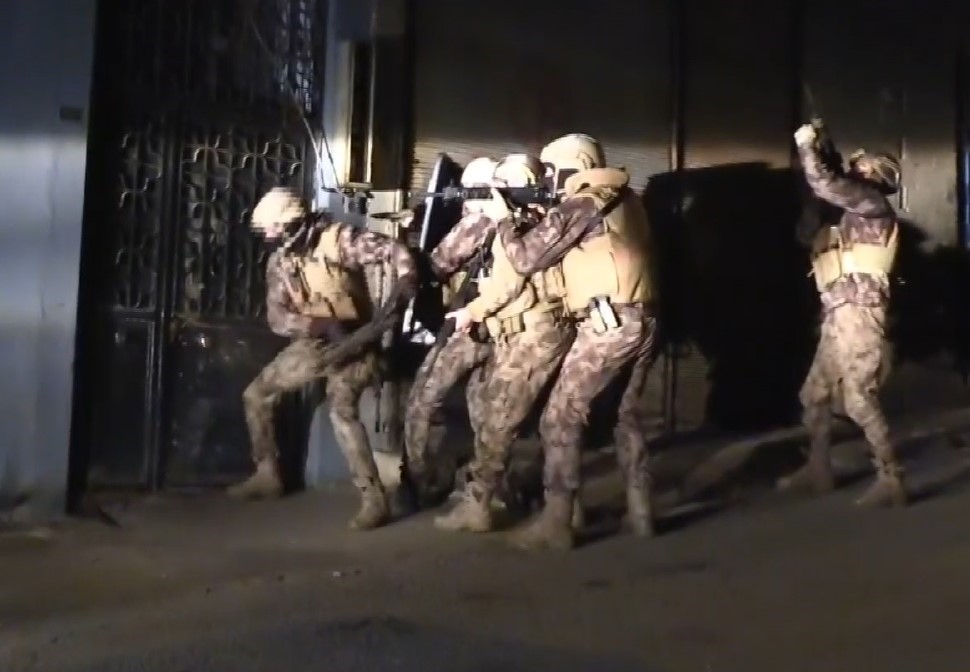
Continued operations into 2025
Türkiye’s operations did not slow down as the new year began. On Jan. 3, Interior Minister Yerlikaya announced further operations under the banner of Gurz-35, stating: “In the GURZ-35 operations conducted in 17 provinces over the past week, 42 suspects were arrested.”
The provinces targeted in these operations included Adana, Ankara, Balikesir, Bursa and Diyarbakir.
Yerlikaya added that these suspects were found to be not only members of Daesh but were also financing the organization and actively engaging in propaganda via social media.
He noted that the operations were conducted in close coordination with the Public Prosecutor’s Offices and carried out by the Gendarmerie General Command’s Counterterrorism Department and the Provincial Gendarmerie Commands.
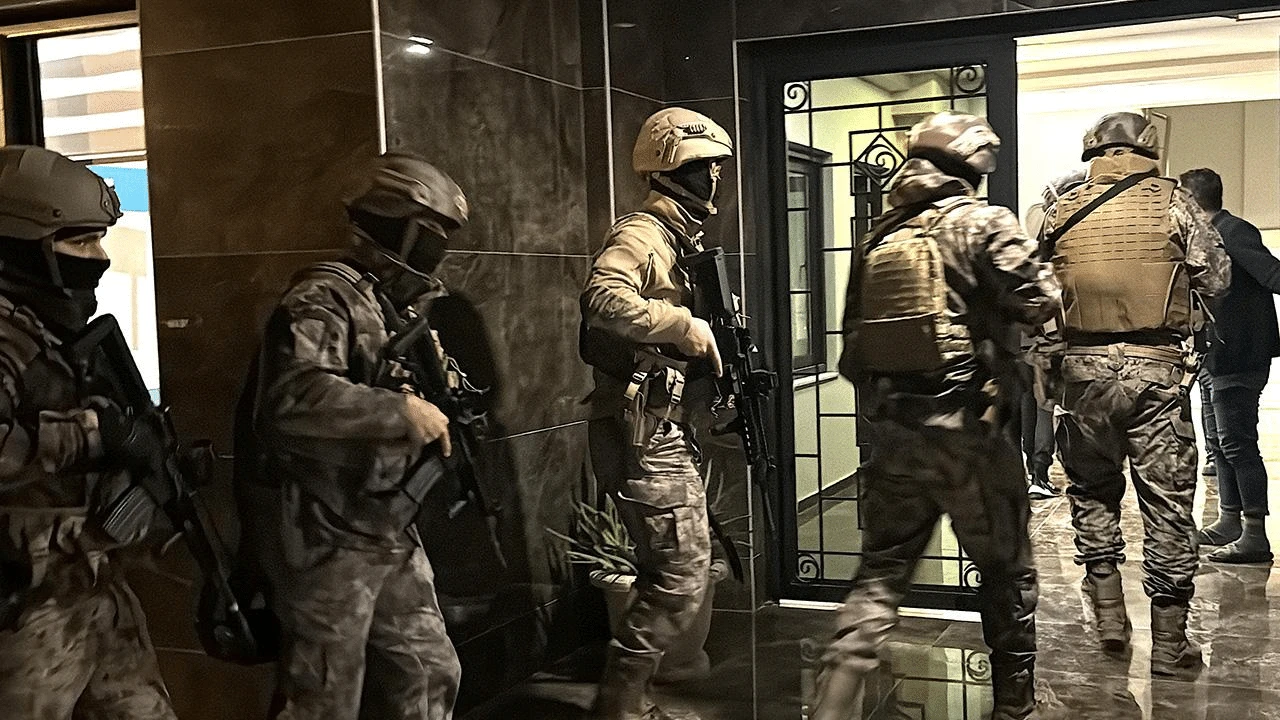
Türkiye’s role in combatting Daesh terrorist group
Daesh terrorist group was officially formed in April 2013 through the expansion of al-Qaeda-affiliated groups in Iraq following the U.S. invasion and the rise of insurgencies during the Syrian Civil War.
Despite its roots tracing back several years, the group rose to global prominence in June 2014 when it declared the establishment of a so-called caliphate, attracting attention worldwide.
Many countries quickly designated Daesh as a terrorist organization following this declaration. Türkiye was one of the first three nations to officially add Daesh to its list of terrorist groups, doing so on Sept. 30, 2013.
From the beginning, Türkiye has been a primary target of Daesh’s terrorist activities, with hundreds of Turkish citizens having lost their lives and many more injured in attacks orchestrated by the group.
However, through sustained counterterrorism operations, Türkiye has largely managed to prevent large-scale attacks in recent years. Ongoing efforts by Turkish security forces have succeeded in disrupting Daesh’s efforts to regroup, recruit new members, and secure financial and propaganda networks.
Though Daesh has not been in the spotlight for any significant attacks in recent years, the group claimed responsibility for an attack on Santa Maria Church in the Sariyer district of Istanbul on Jan. 28, 2024, which left one person dead.
No tolerance for terrorist groups in Syria
Türkiye’s military operations in Syria, which aimed to eliminate terrorist threats, have dealt significant blows to Daesh alongside the PKK/YPG terrorist organization.
Meanwhile, Foreign Minister Hakan Fidan recently reiterated that Türkiye is acting carefully to ensure that Daesh and PKK/YPG terrorist groups do not exploit the situation in post-Assad regime Syria.
Though Daesh’s activities in Syria and Iraq saw a general decline between 2019 and 2023, an uptick in attacks was observed in Syria throughout 2024. After the collapse of the Bashar al-Assad government in December, Daesh conducted several small-scale attacks as the group aimed to capitalize on the power vacuum left behind.
The liberation of Damascus, following a successful offensive by Hayat Tahrir al-Sham (HTS), has marked a significant turning point in Syria.
Syrian ousted regime leader Assad, who had ruled for nearly 25 years, fled to Russia after anti-regime forces took control of the capital on Dec. 8, 2024. A new administration, led by Ahmed al-Sharaa, has since assumed control of the country.
Meanwhile, as HTS seized control of key areas, Daesh issued statements declaring its intent to continue pushing its own agenda in the region.
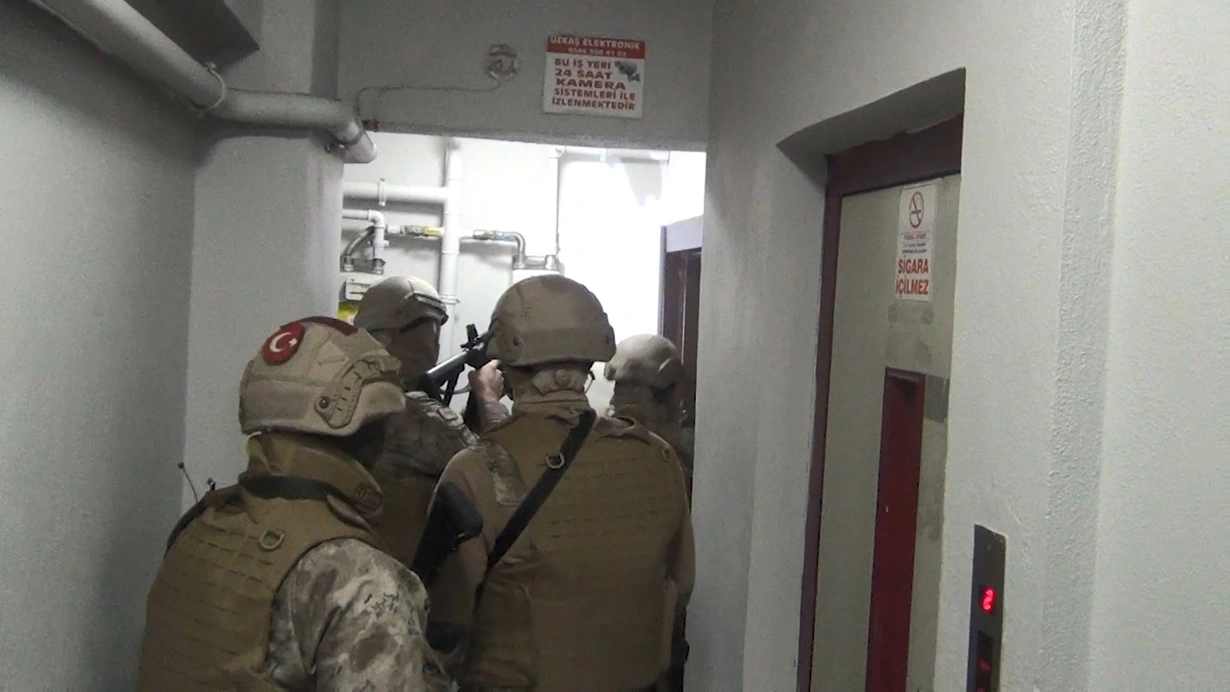
‘Terrorists face inevitable elimination’
Erdogan said Friday that terrorists have only two choices: “renounce terrorism and lay down their arms, or face inevitable elimination.”
As Türkiye continues to lead the fight against Daesh within its borders and in neighboring Syria, the international community remains closely focused on how the situation in Syria will evolve.
With Türkiye’s proactive counterterrorism efforts, including high-profile arrests and extensive operations, the country plays a crucial role in preventing Daesh from regaining strength.
However, as analysts point to the group’s attempts to capitalize on the instability in Syria following the fall of the Assad regime, questions arise as to whether the Daesh terrorist group is seeking to regroup and rebuild in the region.
